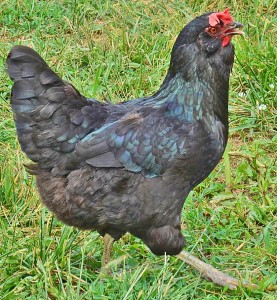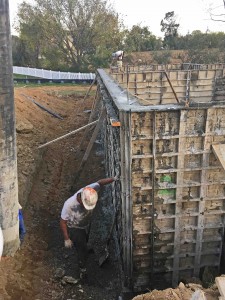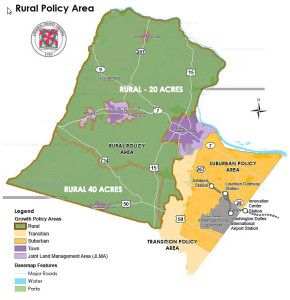
This hen will now cost you $165 to “permit” you to have a chicken coop.
The County is taxing Western Loudoun farm buildings, by the authority of the Commissioner of Revenue, by assessing pole barns for taxes that the County never assessed before this year.
Even among those barns that were assessed previously, farm owners have been confounded by by the amazing leaps in assessed value.
In one case, the increase in assessment was a factor of thirteen times greater, from a $2,000 assessment last year on a 60 year old barn to a $26,000 assessment this year, with the questionable explanation, by the assessor, that the owner of the barn had painted the barn.
Farmers say this arbitrary policy of assessments is hardly reasonable and is fundamentally unfair.
In another setback for farmers in the West, following upon these Assessments, the County, by a new Zoning Ordinance, circulated this past Friday, requires that farmers obtain a permit for each chicken coop that a farmer has or acquires.
This is how the current zoning permit procedure reads.
It is described as the “procedure for obtaining a zoning permit for a coop/shelter for chickens.”
It says, “the property owner shall complete a building and zoning permit application form … that is accompanied by a plat showing the proposed location of the structure with distances to property lines …”
The term, “shall,” makes this requirement mandatory, and not permissive.
The permit fee – apparently mandated for each separate coop – costs $165 each.
The coop is described as a “structure.”
Farmers have asked the Commissioner of Revenue in connection with the increased assessments, to explain exactly what the Commissioner meant by the term “structure.” The Farmers are of one mind that they got no answer at all.
As for the coops, chickens generally live mostly in small mobile boxes that house or protect them from the elements and from predators.
These coops are not large stationary structures that required a zoning permit or a health department permit in the past.
It is hard to make out a fair rationale, Farmers say, when the County requires permits for chicken coops about the same size as a dog-house but require no permits for a dog house. Continue reading →



